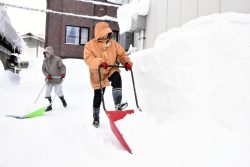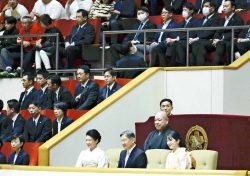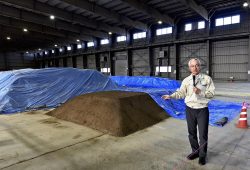11:27 JST, November 27, 2023
TOKYO (Jiji Press) — The number of children in Japan diagnosed with anorexia nervosa, an eating disorder, remained high in the third year after the outbreak of COVID-19, a survey by a government-linked institute has found.
Anorexia nervosa is a disorder in which people have abnormally low body weight as a result of excessive dieting or vomiting after consuming food. People suffering from the condition risk it affecting their everyday life.
The number of anorexia nervosa cases among children spiked some 50% in fiscal 2020, when the novel coronavirus crisis began, from fiscal 2019. Cases in fiscal 2022 were 40% higher than the level in fiscal 2019, before the pandemic, according to the survey by the National Center for Child Health and Development.
The government downgraded COVID-19 to Category V, which also includes seasonal influenza, under the infectious disease control law in May this year, and novel coronavirus-related movement restrictions have been lifted.
Still, it is unclear when the physical and mental impacts of the prolonged pandemic will let up. The center continues to call for careful consideration to be given to children.
For the survey, the center sent questionnaires to 31 hospitals around the country between April and June this year. Twenty-three of the hospitals gave valid responses on patients under 20 who were diagnosed with anorexia nervosa on their first visits to outpatient care in fiscal 2022, which ended in March 2023.
According to the survey, the number of patients stood at 276, up 40% from the fiscal 2019 level of 199, with boys accounting for 31 and girls 245. The total figure was still high although it was down from 313 in fiscal 2020 and 319 in fiscal 2021.
Data using a different tally of valid responses showed that the number of children newly hospitalized for anorexia nervosa came to 183 in fiscal 2022, up around 60% from fiscal 2019.
The number is on a rising trend, and there are suggestions that children with serious symptoms may have increased.
“The physical and mental toll of factors such as suspensions of school events and recommendations for eating school meals without talking to each other will not subside soon, and it is unclear whether (anorexia nervosa) patients will decrease following COVID-19’s shift to Category V,” said Tatsuya Koeda of the center, who was in charge of the survey.
Top Articles in Society
-

JAL, ANA Cancel Flights During 3-day Holiday Weekend due to Blizzard
-

Man Infected with Measles May Have Come in Contact with Many People in Tokyo, Went to Store, Restaurant Around When Symptoms Emerged
-

Australian Woman Dies After Mishap on Ski Lift in Nagano Prefecture
-

Record-Breaking Snow Cripples Public Transport in Hokkaido; 7,000 People Stay Overnight at New Chitose Airport
-

Foreign Snowboarder in Serious Condition After Hanging in Midair from Chairlift in Nagano Prefecture
JN ACCESS RANKING
-

Univ. in Japan, Tokyo-Based Startup to Develop Satellite for Disaster Prevention Measures, Bears
-

JAL, ANA Cancel Flights During 3-day Holiday Weekend due to Blizzard
-

Japan Institute to Use Domestic Commercial Optical Lattice Clock to Set Japan Standard Time
-

China Eyes Rare Earth Foothold in Malaysia to Maintain Dominance, Counter Japan, U.S.
-

Japan, Qatar Ministers Agree on Need for Stable Energy Supplies; Motegi, Qatari Prime Minister Al-Thani Affirm Commitment to Cooperation




















